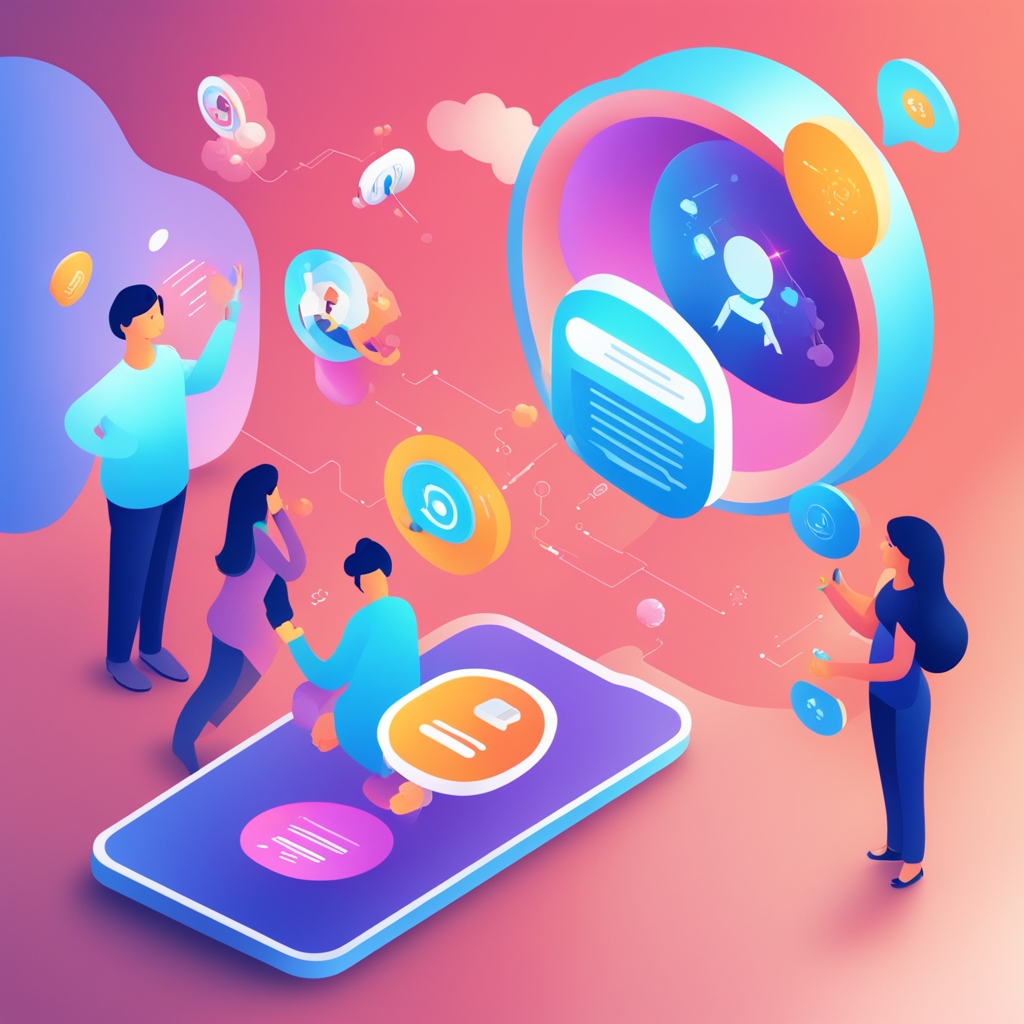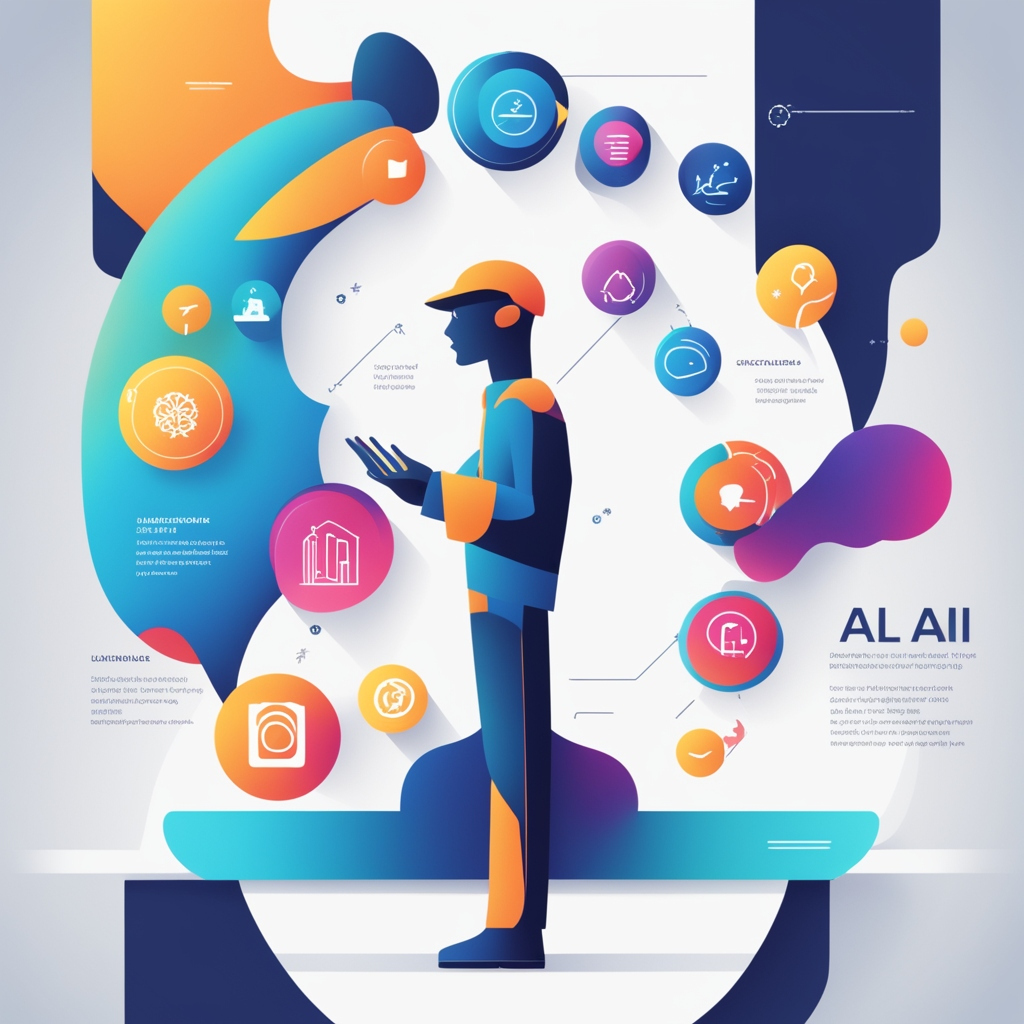In the dynamic landscape of customer service, businesses are constantly seeking innovative solutions to streamline operations, improve efficiency, and enhance customer satisfaction. Among these solutions, AI-powered chatbots have emerged as a game-changer, revolutionizing the way businesses interact with customers. In this comprehensive blog post, we’ll delve into the multifaceted impact of AI-powered chatbots on customer service efficiency and explore how businesses can leverage this technology to deliver exceptional customer experiences.
Understanding AI-Powered Chatbots
AI-powered chatbots are computer programs equipped with artificial intelligence capabilities, including natural language processing (NLP) and machine learning algorithms. These chatbots simulate human-like conversations with users, providing instant responses to queries, resolving issues, and delivering personalized assistance across various communication channels, such as websites, mobile apps, and messaging platforms.
The Impact of AI-Powered Chatbots on Customer Service Efficiency
- 24/7 Availability: AI-powered chatbots operate round-the-clock, enabling businesses to provide instant support to customers at any time of the day or night. This continuous availability ensures prompt responses to inquiries, enhances accessibility, and eliminates delays in customer service interactions.
- Scalability: Unlike human agents, AI-powered chatbots can handle multiple customer inquiries simultaneously, making them highly scalable and capable of managing large volumes of customer interactions without compromising quality or efficiency. This scalability is particularly advantageous during peak periods or sudden spikes in customer inquiries.
- Faster Response Times: AI-powered chatbots leverage advanced algorithms to analyze and understand user queries in real-time, allowing them to generate accurate responses instantaneously. This rapid response capability significantly reduces waiting times for customers, leading to improved satisfaction and loyalty.
- Personalized Interactions: AI-powered chatbots can gather and analyze customer data to personalize interactions and tailor responses based on individual preferences, purchase history, and behavior patterns. By delivering relevant and context-aware assistance, chatbots enhance the overall customer experience and foster stronger customer relationships.
- Automated Task Execution: AI-powered chatbots can automate routine tasks and processes, such as order tracking, appointment scheduling, and information retrieval. By handling these repetitive tasks autonomously, chatbots free up human agents to focus on more complex inquiries and value-added activities, thereby increasing operational efficiency.
- Data Insights and Analytics: AI-powered chatbots capture valuable data and insights from customer interactions, including common queries, feedback, and sentiment analysis. These insights can inform business decision-making, identify trends, and drive continuous improvement in customer service operations.
Real-world Applications of AI-Powered Chatbots
- Customer Support: AI-powered chatbots are widely used in customer support to address common inquiries, troubleshoot technical issues, and provide product or service information in real-time.
- E-commerce: AI-powered chatbots enhance the shopping experience by assisting customers with product recommendations, order tracking, and personalized assistance throughout the purchase journey.
- Travel and Hospitality: AI-powered chatbots streamline travel bookings, hotel reservations, and itinerary planning, offering travelers convenient and personalized assistance at every stage of their journey.
- Banking and Finance: AI-powered chatbots automate account inquiries, transactional requests, and financial advice, providing customers with instant support and personalized recommendations for managing their finances.
Best Practices for Implementing AI-Powered Chatbots
- Clear Communication: Ensure that chatbots communicate clearly and transparently with users, setting expectations regarding their capabilities and limitations upfront.
- Continuous Learning: Implement machine learning algorithms to enable chatbots to learn from user interactions and improve their responses over time.
- Human Handoff: Provide a seamless transition to human agents when chatbots are unable to address complex inquiries or when human intervention is required for resolution.
- Privacy and Security: Prioritize data privacy and security measures to protect customer information and ensure compliance with relevant regulations, such as GDPR and CCPA.
Challenges and Considerations
- Natural Language Understanding: Chatbots may struggle to understand colloquial language, slang, or complex queries, leading to misunderstandings and errors in responses.
- Integration with Existing Systems: Integrating chatbots with existing CRM systems, databases, and backend systems requires careful planning and coordination to ensure seamless data exchange and workflow automation.
- User Acceptance and Adoption: Customers may initially be skeptical or resistant to interacting with chatbots, requiring businesses to educate and incentivize users to embrace this technology.
Future Directions
As AI technology continues to evolve, the future of AI-powered chatbots holds immense potential for further innovation and advancement. Future developments may include enhanced natural language understanding, multi-modal interactions (e.g., voice and text), and integration with emerging technologies such as augmented reality (AR) and virtual reality (VR) for immersive customer experiences.
Conclusion
In conclusion, AI-powered chatbots are revolutionizing customer service by enhancing efficiency, scalability, and personalization. By leveraging advanced AI algorithms, businesses can deliver instant support, streamline operations, and elevate the overall customer experience. As chatbot technology continues to evolve, businesses that embrace this innovation will gain a competitive edge in meeting the evolving needs and expectations of modern customers.




